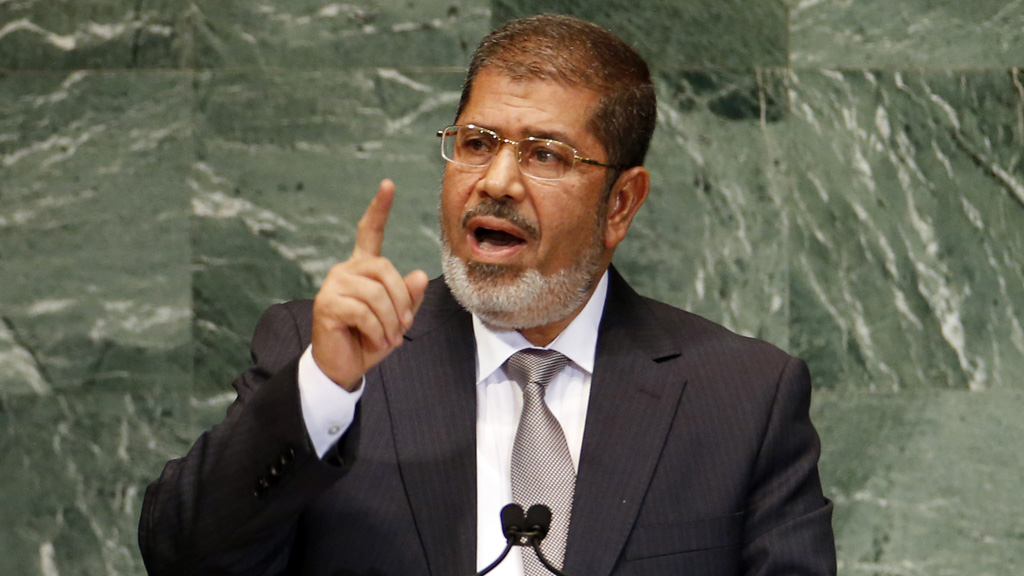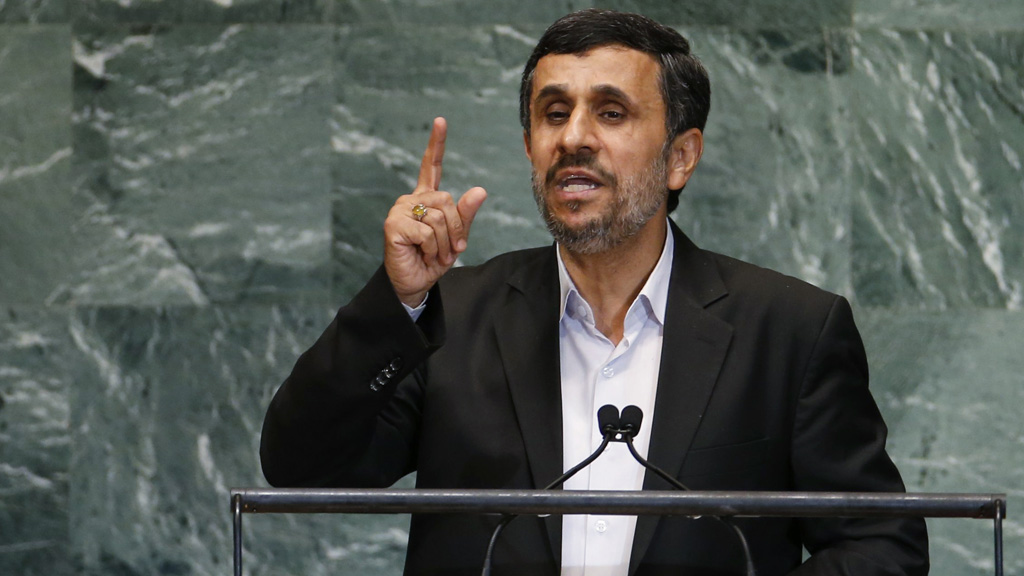Middle East leaders use UN platform to criticise Israel
A host of leaders from the Middle East used the platform of the UN General Assembly to criticise Israel in a series of speeches.

Egypt’s new president Mohamed Morsi (pictured, left) used his speech at the UN General Assembly today to call for the establishment of an independent Palestinian state and an end to bloodshed in Syria.
Mr Morsi, who assumed office in June following the Egyptian uprising, said the first and most important issue the international community had to deal with was the rights of the Palestinian community.
He described Israel’s continued building of settlements in the West Bank on territory that Palestinians claim for a future state, as “shameful”.
“The fruits of dignity and freedom must not remain far from the Palestinian people,” he said. “From the premise of defending truth, freedom and dignity and from my duty to support our Palestinian brothers, I place the international community before its responsibility.
The current abysmal situation of the world and the bitter incidents of history are due mainly to the wrong management of the world and the self-proclaimed centres of power who have entrusted themselves to the devil. – Iranian president Mahmoud Ahamdinejad
“I call for immediate movement, serious movement, as of now, to put an end to colonisation, occupation and settlement of occupied Jerusalem. I call for a peace that would establish an independent Palestinian state, a sovereign Palestinian state.”
Mr Morsi also used his speech to call for an end to bloodshed in Syria. He called for the international community to get involved in negotiating a peaceful settlement to the conflict, and said he was opposed to “the dangers of foreign military intervention.”
“Israeli arrogance”
Mr Morsi’s words on Israel echoed those of Yemeni president, Abdrabuh Mansour El-Hadi, who said the lack of international pressure against the country was “a key failure in international justice.”
“There has been a frightening escalation of Israeli violence and settlements have been expanding,” he said. “Innocent Palestinians are maimed, activists are besieged, prisoners and detainees are oppressed and the attempts of the Israeli side to demolish the al Aqsa mosque are continuing.

“This requires a stronger role and a closer and more effective presence for the United Nations and its agencies against the Israeli arrogance and disobedience to international community resolutions and its refusal of all peaceful proposals and initiatives.”
Unsurprisingly, another critic of Israel was Iranian president Mahmoud Ahmadinejad (pictured, right). Israel and the USA have not ruled out the possibility of military intervention if Iran does not end its nuclear programme.
In a 33-minute speech to the General Assembly Mr Ahmadinejad, said his country was under a “continued threat by the uncivilized Zionists to resort to military action against our great nation.”
He also criticised the make-up of the United Nations, in which a limited number of countries, including the USA and the UK, have vetos, saying the system prevented UN decisions being “just and equitable”.
“The current abysmal situation of the world and the bitter incidents of history are due mainly to the wrong management of the world and the self-proclaimed centres of power who have entrusted themselves to the devil,” he said.
Yesterday, US president Barack Obama took aim at the Iranian president, saying that the US will “do what we must to prevent Iran from obtaining a nuclear weapon”.
However Mr Morsi, in a move that would have given heart to Mr Ahmadinejad, said that though he is opposed to any country having weapons of mass destruction, all nations had the right to developing nuclear energy.
